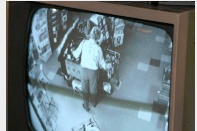 It’s not every day that I bring someone new to my team. I’m a regional Loss Prevention Manager and I manage a very small, but highly motivated and productive team. I need someone to work independently, make good business decisions and get results all with very minimal supervision. I also need someone that is of good moral character and has integrity above all else. Normally, when I have an open position, it will take me weeks to fill. I’m extremely selective and always go with the person that I know will fit into my team the best. So running a background check is one of the first things I do when I have a potential candidate, and it should be something you do as well.
It’s not every day that I bring someone new to my team. I’m a regional Loss Prevention Manager and I manage a very small, but highly motivated and productive team. I need someone to work independently, make good business decisions and get results all with very minimal supervision. I also need someone that is of good moral character and has integrity above all else. Normally, when I have an open position, it will take me weeks to fill. I’m extremely selective and always go with the person that I know will fit into my team the best. So running a background check is one of the first things I do when I have a potential candidate, and it should be something you do as well.
It wasn’t all that long ago when I was looking for a market investigator. The position had been posted for a few weeks and I had already interviewed a group of candidates. I had narrowed it down to three and had to make a hiring decision. They all had tons of experience working investigations, retail operations or law enforcement. I knew who I wanted and made a job offer, which was contingent on the successful completion of a background check. We shook hands and he assured me that his record was clean.
A few days later, my background check company sent the results back to me. I was completely taken back. What seemed like a very qualified, motivated person was a complete fraud. His rap sheet was ¼ mile long and he was recently convicted of several counts of fraud. There was absolutely no way I could bring this person onto my team. Had it not been for a solid background check, this person could have potentially cost me and my company thousands of dollars and untold hours of frustration and heartache. This should be a lesson to any owner out there. It doesn’t matter how clean someone appears to be, how well the interview, or even how great their resume may look, there’s always the potential for skeletons to be hiding just below the surface. Do yourself, and your business a favor and always run a background check on new employees.







